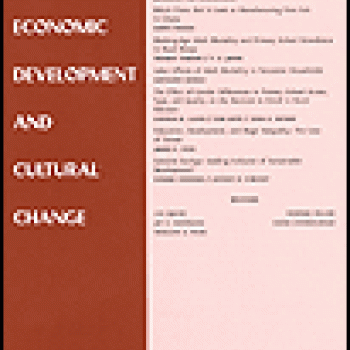
Despite the popularity of school meals, little evidence exists on their effect on health outcomes. This study uses newly available longitudinal data from the state of Andhra Pradesh in India to estimate the impact of the introduction of a national midday meal program on anthropometric z-scores of primary school students, and investigates whether the program ameliorated the deterioration of health in young children caused by a severe drought. Correcting for self-selection into the program using a non-linearity in how age affects the probability of enrollment, we find that the program acted as a safety net for children, providing large and significant health gains for children whose families suffered from drought.
The article is reproduced in accordance with the rules of Chicago University Press.
The final published version of the article is available on the journal website.

Despite the popularity of school meals, little evidence exists on their effect on health outcomes. This study uses newly available longitudinal data from the state of Andhra Pradesh in India to estimate the impact of the introduction of a national midday meal program on anthropometric z-scores of primary school students, and investigates whether the program ameliorated the deterioration of health in young children caused by a severe drought. Correcting for self-selection into the program using a non-linearity in how age affects the probability of enrollment, we find that the program acted as a safety net for children, providing large and significant health gains for children whose families suffered from drought.
The article is reproduced in accordance with the rules of Chicago University Press.
The final published version of the article is available on the journal website.

